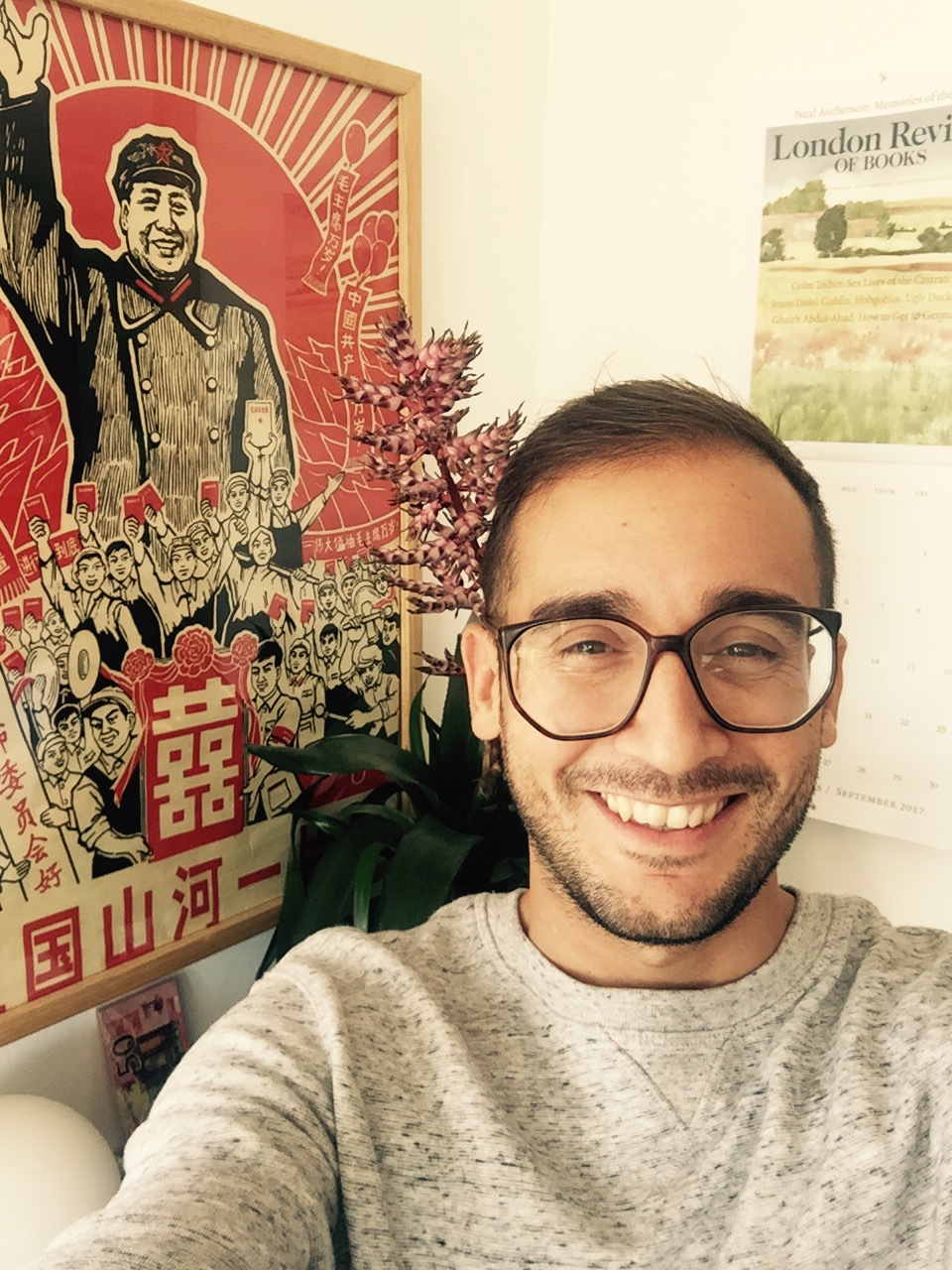 Interview with ASA Media and publicity officer: Andrea Pia
Interview with ASA Media and publicity officer: Andrea Pia
What are you working on at the moment?
I am completing a book manuscript about the political possibilities opened up by China’s relentless march toward a chronically water-scarce future. I have been researching China’s recurring water crises since 2007, and my manuscript covers almost a decade of research across various regions in the PRC. The manuscript tracks the techno-political responses put in place by one of the planet’s biggest water-devourer – Chinese state capitalism – against the increasingly erratic rainfall patterns ushered in by our new era of climatic excesses. My ethnographic core, however, lies with the draught-prone, multi-ethnic rural communities of the Yunnan-Guizhou Plateau and their improvised strategies of survival in, and reappropriation of, environmentally damaged places. Positioned at the juncture of political anthropology, the environmental humanities, material semiotics and the critical scholarship of the commons, the manuscript asks what kind of experimental politics (and what kind of political practice) may be inspired by the thinning out of our material engagements with H2O. When thirst becomes unquenchable, what kind of environmentalism do people have a thirst for? Thanks to unprecedented access to local state agencies, I take the perspective of bred-and-born local water bureaucrats and hydro-engineers, and dwell into the political fault lines cracked opened by China’s recent entrepreneurial turn in water sustainability. What I found is the potency that inheres in the most unexpected of all political alliances: ethnic communities, living at the resource-frontier, collaborating with financially debilitated state institutions in the effort to carry on amidst life-disabling water challenges.
 The Head of a major Water Reservoir in Southwest China stands in front of the resting waters. Photo Andrea E.
Pia, 2013
The Head of a major Water Reservoir in Southwest China stands in front of the resting waters. Photo Andrea E.
Pia, 2013
You mentioned doing fieldwork within state bureaucracy. How does that work?
Working within state bureaucracies, and especially in an authoritarian context, was far from the ideal ethnographic situation. Studying-up this way usually require some forms of self-silencing as the price for working there. It also requires that one is open to constructive collaborations and to volunteering expertise for projects which rationales or implementation one may not immediately agree with. I was lucky enough to be selected for a Chinese Scholarship Council fellowship before fieldwork, and to be hosted by a very prominent Chinese water resource development department, the best in the country. But from there on, access has been mainly down to the good-will and curiosity of the amazing people I ended up working with. They are an ethnically mixed group of water bureaucrats, whose histories of personal sacrifices and water-poor childhoods had made them into the perfect companions for an anthropology project motivated by water justice ideals. My background as a water activist in Italy also helped. I had been delving into the intricacies of water markets and management for quite a while before taking residence in the local water station, and I could prove to be an interesting conversation for bureaucrats, who often battled with boredom at the office. But in fact, a day in the life of a Yunnanese water bureaucrats is anything but boring. For one, many underserved households living on the Plateau considered water officials as their saviours –the only people who could grant them access to the most essential of substances, unpolluted freshwater. Besides, life in rural China can be very exciting. For instance, I once had the amazing opportunity to act as a polling clerk for a local village committee’s election.
What’s your role on the ASA committee and why did you decide to volunteer some of your time to the association?
I was asked to join to the ASA committee as a Media officer because of a sudden vacancy. My first reaction was that I couldn’t say no. As a China-scholar-turned-anthropologist I have had direct experience of how the discipline is often belittled and overlooked by other disciplines, as well as in the mainstream. This was true for Italy, where I first studied anthropology, but it is even truer for the UK today, where the discipline faces, to use Andrea Cornwall apt phrasing, “dwindling numbers of students” and entertains again “talk of the end of anthropology”. If my research and activism thought me one thing is that one needs to get into the control rooms to promote positive change. Or better, one needs to agitate and organise – this better captures the kind of work with do in the ASA committee – to give an institutional and intellectual home to our discipline, and make sure that anthropologists, both working outside and within academia, are supported and represented effectively. As Media officer my hope is to campaign for a more accessible association as well as promote anthropological projects with an immediate relevance to public debate.

